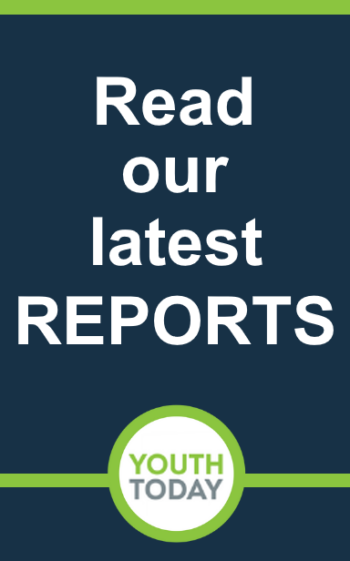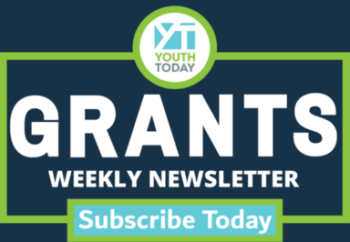In 1968, Chief Executive Officer of Bowne & Co. Stationers, Edmund A. (Ted) Stanley, Jr., founded the Robert Bowne Foundation (RBF). Initially a very small foundation with an annual budget of under $100,000, it was financed entirely through Stanley’s personal contributions along with an annual appropriation from Bowne & Co. Stanley himself made all allocations, generally to such mainstream youth organizations as the YMCA and the Boys & Girls Clubs. After about fifteen years of such practice, in 1983, Stanley invited Dianne Kangisser to become the first Executive Director of the Robert Bowne Foundation. She launched her new undertaking with an inquiry process.
Interviewed in August 2011, Kangisser reflected back on becoming a grantmaker:
“I had a lot to learn. I started reading, and took some courses in grantmaking. From that studying, I realized that with a small foundation, if you didn’t focus your grantmaking in one area you had no impact at all. I told the Bowne Board that focusing to have an impact was my recommendation — and I then spent a year researching, interviewing, learning about areas where I thought we could make a difference. I said to the Board that I was going to look for an area of need where a small foundation could find a niche and make a difference …
“What was obvious to me from visiting the programs Ted had given to, was that there was a need. I decided I could take his work as a foundation and build on that. I said that where the need was, was in afterschool programs. We could never have an impact on the public school system because we were too small. There were foundations giving to youth programs. But, as far as I could see, there were no foundations giving to youth education — to literacy — reading and writing.”
In 1987, with Kangisser sharing her inquiry process with the Bowne Board, the members approved the Foundation’s focus on afterschool youth literacy education. Reflecting back, Board President Jennifer Stanley says that “Dianne brought the Board into what was happening.” As the first person brought onto the Board who was not connected to Bowne & Co, Suzanne Carothers accepted Kangisser’s invitation because she felt the members valued her knowledge and skills. In a May 2012 interview, she describes the Board’s stance as one linked to “inquiry”: “The willingness to be self-reflective and learn started with the beliefs of [the Stanley] family. It was their willingness to be open and learn.”
Kangisser also set the tone of the Foundation with her work in the field. She personally visited every RBF-funded program, seeking to understand how best to support them. As described by Carothers:
“Dianne [Kangisser] asked them: ‘What are you doing? What’s working? What can we do to support your growth?’ She shifted the questions. When the questions do not fit your expectations, you have to learn and grow. It’s a process to help our grantees. We say to our grantees, we have high expectations of you — and then we ask them how they are going to get better at something. Bowne demands a heck of a lot more of you, because it requires you to go to a deeper place in your own development.
“When you have that kind of expectation, then you have to scaffold opportunities for people to build their own expectations. Not just tell me– but ask me. It takes time.
“The Bowne Foundation has worked with programs to define their needs. Some did not know they had needs. The disenfranchised communities had the challenges of trying to get money. They are always one step behind or in front of the rent man. How you intervene in that context has to look different.”
In 1988 — to help programs identify their own needs, and then provide the Foundation support to meet those needs — Kangisser hired expert literacy consultants she trusted. She encouraged them to meet with each other to share their experiences. In an October 2013 interview Anne Lawrence, RBF Program Officer since 2002, describes the process:
“What Dianne [Kangisser] was good at was getting a group of people who were knowledgeable in the field and bringing them together. That’s how we learned from each other. The technical assistance providers met regularly and began learning from each other. One of the things we learned early on was that management had a great deal of influence on whether literacy was happening [in a program], whether the staff had the support to make changes.”
Lena Townsend — who in 2001 became the first full-time Executive Director of the Robert Bowne Foundation — also participated in the group. She described her learning process in an October 2013 interview:
“I went from someone who knew nothing about afterschool programs, to someone who learned … I visited lots of community-based projects. I started seeing community-based projects as places where people came together, places where people are supported, from toddlers to seniors. Literacy is one of the things [such projects] can support naturally in all they do. My own work developed as I learned. My role evolved. We did strategic plans. I learned to use what I learned about organizations and programs to come up with a vision for the Foundation.”
Lawrence adds:
“Lena and I — that’s one of the reasons we’ve been able to accomplish so much over the years. We have similar values in terms of what is important. From the beginning we did our theory of change, our strategic planning, set goals, and changed over time because we are constantly reflective and look at what needs to change.”
In addition to hiring staff and consultants who value the inquiry process, the RBF has instituted the practice of on-going reflection and evaluation, including hiring consultants to conduct formal inquiry processes focused on practice. Throughout its history the Foundation has encouraged program evaluation and assessment by funding studies of the grantees practices as well as RBF’s own internal practices. Highlights on the timeline of these published studies include:
- 1989: Study of the National Helpers Network: Reading, Writing and Reviewing: Helpers Promoting Reading, New York: National Helpers Network. Cited in The Third Arena.
- 1991: Study of effective afterschool programs: Portraits of Youth Programs
- 1995: Publication based on the work of the Professional Development Group: Supporting Community Learning: A Staff Development and Resource Guide for AfterSchool Youth-Education Programs
- 1997: Publication about the Brooklyn Children’s Museum
- 1999: Publication of Dianne Kangisser’s The Third Arena
- 2003: Initiation of the Robert Bowne Foundation series of Afterschool Matters Occasional Papers, launched with Robert Halpern’s Supporting the Literacy Development of Low-Income Children in Afterschool Programs
- 2002-2007: Five-year reflective inquiry process led by Kim Sabo Flores for Robert Bowne Foundation staff and consultants, resulting in the 2009 publication of A Dynamic Framework for Understanding the Complex Work of Quality Out-of-School Time Programs
- 2004: Kathy Murnion, consultant to the Robert Bowne Foundation, presents the Bowne Foundation Board with strategic plans that were prepared with input from both Foundation staff and Board Trustees
- 2006: Anne Lawrence article How Are We Doing: Using Evaluation to Inform Program Decisions
- 2007: Kathy Murnion prepares and presents: A Strategic Look at the Robert Bowne Foundation’s Future
- 2007: Sara Hill edits a collection of articles from Robert Bowne Foundation publications, which is published by Corwin press. Afterschool Matters: Creative Programs that Connect Youth Development and Student Achievement
- 2010: The Robert Bowne Foundation approves Legacy Planning with the “overall goal . . . to insure that innovative, generative and creative professional development practices in OST literacy education and grant-making will continue into the future beyond the life of the Foundation. Such practices are defined as: (a) inquiry-based and (b) hold practitioners at the center of programmatic and funding decisions as experts, partners and collaborators.”
- 2012: Publication of The Legacy of the Robert Bowne Foundation
In addition to funding inquiry studies, the Foundation offered professional development opportunities so grantees could learn research skills to address questions arising from their own practice. From 2002-2008, Suzanne Marten of the Center for Educational Options offered a series of Action Research Seminars in which she adapted and taught inquiry practices to afterschool practitioners. As Marten describes in a 2013 interview:
“You find out what their questions are and what they’re good at, and help them see that they are capable of taking action. It was so in-line with Bowne’s philosophy, it seemed like a good fit to propose this type of work. [Practitioners] can see things in the data they have collected and can use such insight to determine what they want to do next and do it better.”
In 2003, RBF launched a comprehensive Afterschool Matters Initiative, including:
- The Afterschool Matters journal
- Practitioner Research Fellowships
- Fellowship Seminars led by Sara Hill
- Research Roundtables
- Edmund A. Stanley Jr. Research Grants in support of academic research in the field of afterschool
- Publication of the series Afterschool Matters Occasional Papers
The Practitioner Research Fellowships evolved from an identified need for more articles written and submitted by afterschool practitioners for publication in the Afterschool Matters journal. Lena Townsend and Sara Hill describe the process of creating the journal:
Lena Townsend (October 2013 interview):
“When I came to the Foundation, Dianne Kangisser had the idea of starting a journal. She gave grants to two organizations to develop the journal. They got the first issue out, and named the journal in 1998. They were able to find people to write articles for that first issue, but it was not easy. For the second issue, it was hard to find authors. After two or three years, they couldn’t get it done. When I became ED [Executive Director], it fell into my lap. … I had to figure out how to get youth practitioners to write and to write for the journal. I thought about my experience with inquiry and I talked to my colleagues, including Sara Hill. We ended up with ten practitioners in an inquiry group to write articles.”
Sara Hill (July 2011 interview):
“Lena was able to convince the [RBF] Board to hire a Research Officer as another full time position. We decided to create a Fellowship and the inquiry groups. Lena had a strong idea about teacher inquiry from her work at ILS [Institute for Literacy Studies at Lehman College]. I would be the facilitator and design the curriculum. The Fellowship was one thing that was supposed to generate writing for the journal.”
“The other thing we started at that time was the Edmund A. Stanley Research Grant. This was the first time the Robert Bowne Foundation ever sent out national RFPs [Request for Proposals].”
Inquiry is thoroughly integrated into all RBF-sponsored professional development activities, from written evaluations completed by participants, to the program revisions in response to feedback, to formal investigations by outside consultants. Moreover, RBF Board members, staff, and consultants all participated in a series of strategic planning processes beginning in 2002. Since then, all RBF decisions and actions, including the more recent planning for its closing and Legacy, have been guided by the Strategic Plan.
LINKS
- Video: Action Research, Reflection Informed Foundation’s Practice of Support, Capacity Building Discussion between Robert Bowne Foundation Program Officer Anne Lawrence and Executive Director Lena Townsend about how action research and reflection informed Foundation practice of support and capacity building for grantees.
- Afterschool Matters: Creative Programs that Connect Youth Development and Student Achievement (2007) Corwin Press publishers, Edited by Sara Hill. A collection of articles from Robert Bowne Foundation publications.
- The Third Arena (1999) by Dianne Kangisser
- Portraits of Youth Programs (1991) Study of effective afterschool programs.
- Supporting Community Learning: A Staff Development and Resource Guide for After-School Youth-Education Programs (1995) a publication based on the work of the Professional Development Group.
- Publication about the Brooklyn Children’s Museum (1997)
- Afterschool Matters Occasional Papers, launched with Robert Halpern’s Supporting the Literacy Development of Low Income Children in Afterschool Programs (2003).
- A Dynamic Framework for Understanding the Complex Work of Quality Out-of-School Time Programs 2010 by Kim Sabo Flores
- How Are We Doing: Using Evaluation to Inform Program Decisions (2006) by Anne Lawrence, Literacy Assistance Center
- Robert Bowne Foundation Strategic Goals: 2008-2012 (2007) presentation to RBF Board by Kathy Murnion
- The Legacy of the Robert Bowne Foundation (2012) by Janice Hirota and Sara Schwabacher including four grantee case studies.
Video documentation by Joshua Mackie of four case study sites:
- Rauschenbusch Metro Ministries Executive Director Tiffany Triplett Henkel illustrates how the relationship with the Robert Bowne Foundation guided the organization’s approach to meeting the changing needs of its community
- Queens Community House Associate Executive Director for Youth Services Susan Matlof-Nieves describes how the relationship with the Robert Bowne Foundation helped shape agency culture
- High Five Tickets for the Arts founder Ada Ciniglio and Teen Reviewers and Critics (TRaC) Director Eric Ost describe the support provided by the Robert Bowne Foundation to establish, develop, and stabilize the TRaC program, as it found a home within Arts Connection
- Director Laura Paris and staff of Coalition for Hispanic Family Services (CHFS) Arts & Literacy Afterschool and Summer Program share how their program keeps the legacy of the Robert Bowne Foundation alive by integrating literacy, inquiry, and engagement into all aspects of their programming




















